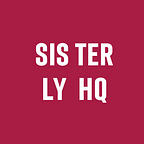The Security Of Nigeria Women: A State Of Emergency
Written by Oreofe Omisope
It is a well-known fact that women are vulnerable to all kinds of security threats. I come from a family that is largely female so we are all too familiar with these threats. In Nigeria, if it isn’t verbal abuse by conductors, it is area boys trying to hit on you and threatening you if you don’t ‘cooperate’. Because of this, women and girls are advised to restrict their movements, especially at night, but these days, even daytime isn’t quite safe.
According to Reuters, Nigeria’s official demographic report showed that 30 per cent of girls and women between ages 15 and 49 have reported cases of sexual abuse. In 2020 alone there was a 40 per cent increase in rape cases in Lagos. All these are alarming facts that only prove what we already know, that there is a threat to the security of women in Nigeria.
The security of women has always been a major risk around the world and Nigeria is no exception. Even with this, for some unknown reason, when Nigerian elections approach cases of violence and harassment increase drastically and women, unfortunately often bear the brunt of it. The effects of this insecurity, as opposed to popular belief, aren’t just physical alone. In the 21st century, where women now more than ever before are active members of society. The threat to their security limits them from fully utilizing their potential. How can a woman conduct business conveniently when she lives in an area where for her own safety she has to be indoors by 5pm? She wouldn’t even be in the right frame of mind to work because, at every point in time, there is always a niggling sense of fear for her security. This sense of fear in women heightens with every new sordid story they hear of other women of varying ages falling victim to rape, kidnap or murder.
Quite recently, the heart-wrenching news of a young girl who went missing after taking a BRT (Bus Rapid Transit), and was later found dead a couple of days later rocked Nigeria. Prior to this incident, the BRT was considered one of the safest modes of transport, but even that was rudely shattered in wake of the incident.
In view of these problems, it is only expected that we create and implement practicable solutions. Telling women to avoid going out at night is highly impracticable, and in this commercial age practically impossible, so what can be done to make moving from place to place safely easier for women around Nigeria?
For starters, a functional hotline should be created that women can easily call if they feel that their safety is at risk in public spaces. I only just recently learned that Lagos has a hotline for domestic abuse because quite frankly I had never heard of it. So not only should the government create a hotline for women, they should create enough awareness around it so that everyone, ranging from the worker in the office to the vendor in the market, knows it offhand.
Another way is that a special mode of transport that is women and children friendly be created that can take women around key areas. Each mode of transportation can have some security personnel attached to it, that way predators are less likely to attack women on public transportations. The idea of Safe Shelters often used in countries for refugees and war victims can also be adopted in Nigeria for victims of predatory attacks. The idea is that every area is mapped and then central locations are selected to set up these shelters, it should be run by women so victims don’t have to feel awkward sharing their problems.
The next is that in areas where cases of women being harassed, more security personnel should be sent to patrol areas. Their presence is pivotal in ensuring the safety and peace of mind of the women in such areas.
Perhaps most importantly is that there should be adequate and proper funding of schemes geared towards ensuring and preserving the security of Nigerian women; from the government to NGOs and even individuals.
Finally, the fight against the threat to the security of Nigerian women is one that is not limited by gender. Men can, and should join hands in this fight so that we can create a Nigeria where women can achieve all the amazing things they were born to achieve without fear or restriction.
Oreofe is a 17 year old feminist and believer. She writes, debates, and has stinted briefly on the radio. In her free time, she reads on anything and everything, and binge watches dramas. You can connect with Oreofe on Facebook.
Edited by Chizulu E. Uwolloh
Zulu, named after Zulu Shofola, is a writer, avid movie watcher, and self-proclaimed bibliophile. She is proud to call herself a feminist and when she’s not editing for Sisterly HQ and watching travel vlogs on YouTube, she’s trying to save the world in her own little way. Connect with Zulu on Instagram and LinkedIn
Published by Yetunde Onafuye
Yetunde is a storyteller, podcaster, and a graduate student with interest in the social and political history of post-independence Africa. She’s also the co-lead editor at Sisterly HQ. In her free time, she reads and reviews books, engages in social volunteering, and watches tons of dramas and TV shows. Connect with Yetunde on LinkedIn and Instagram.
